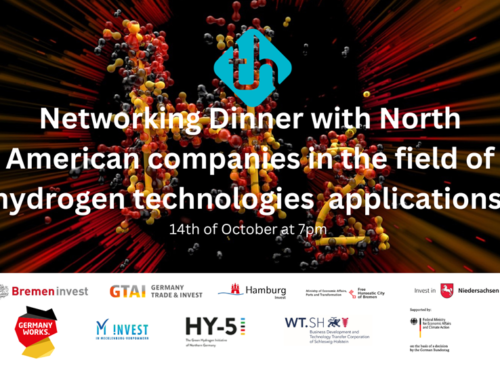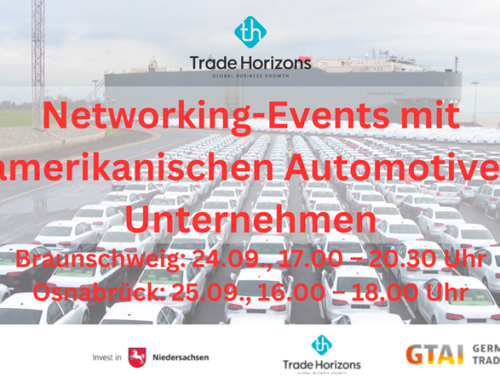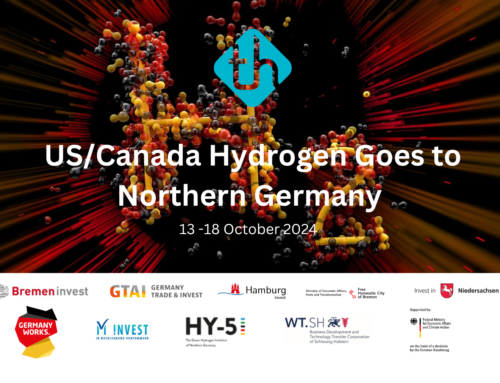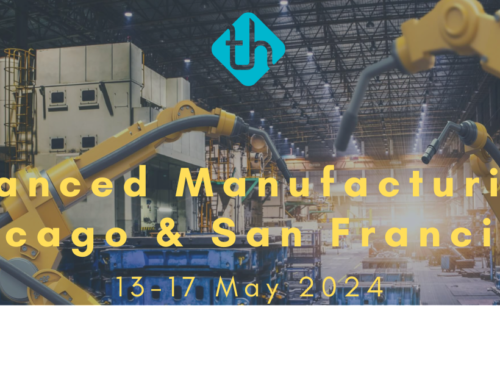1. Who are you & where are you based?
Keith Meadowcroft, based in Ho Chi Minh City, Vietnam. I was formerly in the US Government Programme for export assistance for exporters but then became an independent advisor to companies wishing to enter the US market. I now advise companies wishing to enter Vietnam and South-East Asia.
2. What are the challenges for companies coming into your country?
Entering the US requires an investment of time & money. The US is a consumption country but there are lots of regulations for example in food safety & quality that producers must be aware of & conform to. One of my areas of focus is the food industry, there are a lot of safety checks. Suppliers should research banned substances, for example pesticides because US regulation is strict regarding chemicals. For goods & products for example toys, there are very strong safety regulations here. The US is a very litigious country. There is liability for suppliers and a focus on quality & safety of product.
Vietnam is a fickle market. It’s a young, dynamic market and things can change quickly. Entering Vietnam takes time to enter market. Goods and products need a good branding strategy & priced correctly. But considering there are 800 million consumers in South-East Asia, entry can be worth it!
3. What are the opportunities for companies coming into your country?
The US is a wealthy country with high consumption per capita so food and beverage is strong. It’s a mature market but there are many opportunities, especially now post-pandemic, there is high demand for raw materials for construction. there are shortages in food & beverage, raw ingredients, and packaged food. Investment in infrastructure is high to cater for the population growth, and in housebuilding. There is high demand for low-cost good quality raw materials, so this is a great opportunity. Additionally, the clean energy sector is experiencing a boom.
Vietnam could be an opportunity for food & beverage, but it must be priced correctly. The Government is currently investing a lot into manufacturing infrastructure I see a good opportunity for manufacturers wishing to find a base. Vietnam is known for production and the Government provides some incentives.
4. Why did you want to join Trade Horizons?
Trade Horizons is a collaboration of experts. Before joining I was an independent consultant, collaboration is cool because there’s a team of resources & expertise, as well as access to different countries. My country team has access to many leading import countries & consumer countries which is good for clients, it’s a win-win scenario.
5. How do you think your country pitches itself?
The US is the land of opportunity! There are no limits. However, there are rules & regulations. Companies shouldn’t try to sell cheap, low quality or unsafe goods.
In Vietnam there are low barriers to entry and easy entry regulations for manufacturers. There are many industrial parks set up in Vietnam, these are focused markets creating little hubs of manufacturing based on particular industries, for example Hanoi is a strong location in the electronics sector. In the South, Ho Chi Minh City is more general manufacturing for example textiles & assembled goods. Vietnam is friendly and the people are hard working. If we’re looking at labour, the Government provides incentives for employee and worker training. The lease rates for manufacturing are favourable and many other conditions are positive. There is access to free trade zones to provide products at a lower duty. There are lower taxes and low labour rates as well as incentives for leasing manufacturing equipment and space. It is low cost, skilled labour. I have resources to help manufacturers relocate.
6. Cultural differences
Companies entering the US should be aware of the standards of measurement for example electrical frequency and weights & measures. Packaging and markings should be looked at, as well as style adaption & taste. Americans are friendly & open people but it’s a mature consumption country – if your product is new then do your homework, don’t assume it will always be a fit because something will have to be replaced in the channel to find a spot. For example, in grocery, if market is mature then getting onto the shelf or into the product line takes time to get into rotation.
The Vietnamese are hardworking, friendly, and willing to be trained. There are obvious language barriers – I would suggest to always have a translator. I suggest also to hire a manager that’s proficient in English. The Vietnamese are family oriented. Also, the work team is important – socialization & sharing food, work & friends blend together. It’s a very social culture, people are close to coworkers & family. They bond in teams more regularly than the western world.
7. Any surprises?
Companies should be aware of the costs of entering US – import tariffs, true landing costs & costs of clearance, duties. There are strong pressures on inland freight costs moving goods to destination. Be aware of marketplace logistics costs. These are fluctuating week to week – inland transport costs are high compared to pre covid & they fluctuate. Choose your port carefully, have a good partner, someone who knows what’s going on domestically. There are offline & online opportunities and online growing in retail & B2B.
If entering Vietnam companies should again be aware of the true financial costs. There is a different way of doing business there – you will need a local partner to deal in their way. To navigate the business community successfully, make sure you partner with a local person you can trust. It’s critical to have a local partner to navigate things here. And, the way of operating is different in the north to the south, which is different to the rest of Southeast Asia. Vietnam is the head office of trade horizons Southeast Asia operations, and we can be a key partner into this region. Southeast Asia has a population base of 800 million so there are many opportunities to be had for companies who want to import goods, equipment, and green technology.
8. How do companies market to their customers here?
In the US the nature of marketing depends on product – is it B2B or retail? If offline and the company is selling to an importer or wholesaler then they will take it & market it to another business or direct to retail. Companies often overlook this, but they must develop a support programme for a product. If focusing on the US, you must focus on support because reputation is so important. If you’re working with a dealer for example someone who resells, the product must be supported. Customer service must be of a standard so the consumer has confidence in the product. My advice is to have a good strategy here.
In online marketing the big gorilla in the room is Amazon. It’s a must for online marketing and is becoming more B2B. They have a major share. Your online strategy can support offline, for example customers often research on amazon but buy retail. Walmart.com for online is number 2, especially for B2C.
In Vietnam there is the modern trade with a relative level of discretionary spending and the traditional general trade which has a lower level of spending. Companies need to have a good distribution partner. If selling into Vietnam Trade Horizons can help you find the right distribution partner – we can identify & vet them, and we know the market for your product type.
9. How are foreign brands perceived here?
In general US consumers are open to foreign products. We are dependent on Chinese products. In Walmart and Costco China is everywhere in the product supply chain. For luxury & exotic products we recognize France & European countries. Here there are no negative feelings. But marketing in Vietnam for example they do not like Chinese brands. The US market is neutral or positive about foreign & imported goods.
In Vietnam there is a lot of luxury, people know luxury & high-end brands but if you’re entering the market with an unknown product you must invest in the awareness of the product. If it’s food and beverage then you will need to do a sampling campaign. If it’s technology or equipment you will need a distributor who can position the product correctly. They will accept new brands, but they need to be made aware of them.
10. Fun little-known fact about your country
In the US freedoms of all kinds are a huge part of our culture! People can express themselves in any way they want to without fear of oppression. It’s a multicultural & culturally rich country.
Vietnamese are welcoming, friendly, proud of their country. They are more open to new products than more developed countries and they are ready & open for change, and digitally savvy.
11. Top 3 priorities for 2022?
a. Settle in to Vietnam
b. Be successful helping companies into Southeast Asia / relocate manufacturing to Vietnam market
c. Be successful in a new environment.
Thanks for talking to us Keith! See you in Vietnam
Trade Horizons
Trade Horizons is an award-winning market entry company, assisting ambitious companies to identify, develop and grow sustainable revenues in new geographic markets. We offer support to clients in international strategy development for their global business growth, and throughout the key phases of market entry execution – Preparation, Launch and Growth. Click here to find out more.






